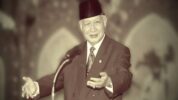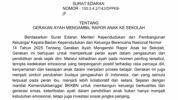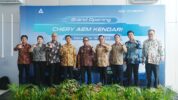Indonesia’s Military Bill Sparks Controversy: Civil Groups Warn of Military Overreach
JAKARTA, RAKYAT NEWS — The Indonesian government has recently presented the Draft of the Revised National Military Bill (RUU TNI) to parliament, a proposal that continues to provoke strong opposition from civil society groups.
The government’s revision still contains problematic provisions that would revive the controversial dual function (dwi fungsi) of the Indonesian National Armed Forces (TNI), giving the military greater involvement in civilian sectors and perpetuating militarism in the country.
A coalition of civil society organizations has voiced its opposition to the proposed revisions, stressing that the existing Law No. 34/2004 on the Indonesian National Army is still relevant and should remain in place. According to the coalition, there is no urgent need for the revision, and instead, focus should be placed on modernizing the military’s equipment and improving the welfare of military personnel without resorting to further militarization.
The Civil Society Coalition for Security Sector Reform is composed of several organizations, including Imparsial, YLBHI, KontraS, Amnesty International Indonesia, and others. These organizations collectively advocate for democratic governance, human rights, and a professional military that serves the nation without overstepping its boundaries.
The Civil Society Coalition for Security Sector Reform works to promote accountability, transparency, and human rights in Indonesia’s security sector, advocating for reforms to ensure that the military’s role remains strictly within the realm of national defense. Ardi Manto Adiputra (Imparsial), Wahyudi Djafar (Elsam) Julius Ibrani (PBHI), Hafidz Muhammad (Centra Initiative)
, Usman Hamid (Amnesty International Indonesia)
The Civil Society Coalition believes that the draft of the revised bill continues to grant TNI the ability to hold civilian positions that were originally intended for non-military personnel. One particularly concerning element of the bill is the proposal to expand the TNI’s role in civilian institutions, such as the Attorney General’s Office and the Ministry of Maritime Affairs and Fisheries (KKP). This, the coalition argues, is a blatant attempt to reinstate the dual function of the military (dwi fungsi), a policy that has long been criticized for giving the military too much power in political and civilian affairs.
“Placing active-duty military personnel in civilian roles such as those within the Attorney General’s Office or the KKP goes against the core principle of a professional, non-political military. The TNI’s role should strictly be defense, not law enforcement or bureaucratic governance,” said a spokesperson from the coalition.
The coalition also questioned the necessity of having an active TNI officer in the Attorney General’s Office overseeing the “military criminal jurisdiction.” This practice was originally meant for specific cases but has become institutionalized in a way that many civil society organizations argue is unnecessary and can lead to impunity for military personnel.
In addition to the military’s expanded civilian presence, the coalition is also concerned about the bill’s proposals to broaden the TNI’s involvement in operations outside of warfare, particularly in tackling narcotics. Civil society groups argue that narcotics issues should be handled within the framework of law enforcement, not through military intervention. “The TNI’s involvement in non-war military operations, such as drug enforcement, is excessive and undermines the criminal justice system. It risks turning the fight against drugs into a military campaign, which is dangerous and counterproductive,” said another coalition member.
The draft law also proposes allowing the TNI to undertake military operations outside of war without requiring approval from the national parliament (DPR), undermining the democratic oversight of military action. This provision is a significant departure from the current law, which mandates that military operations outside of wartime require parliamentary consent. The bill, as it stands, risks placing unchecked power in the hands of the military and the president, with no adequate parliamentary oversight.
The coalition firmly rejects the draft of the revised TNI law, urging the government and parliament to focus on issues that are more urgent for Indonesia’s military modernization, such as reducing corruption in the defense industry and improving the welfare of military personnel. “The priority should not be expanding the military’s role in civilian life, but rather ensuring the modernization of the armed forces in a way that is transparent, accountable, and free from corruption. The military must serve the people, not overshadow them,” the coalition stated. (Uki Ruknuddin)



























Tinggalkan Balasan